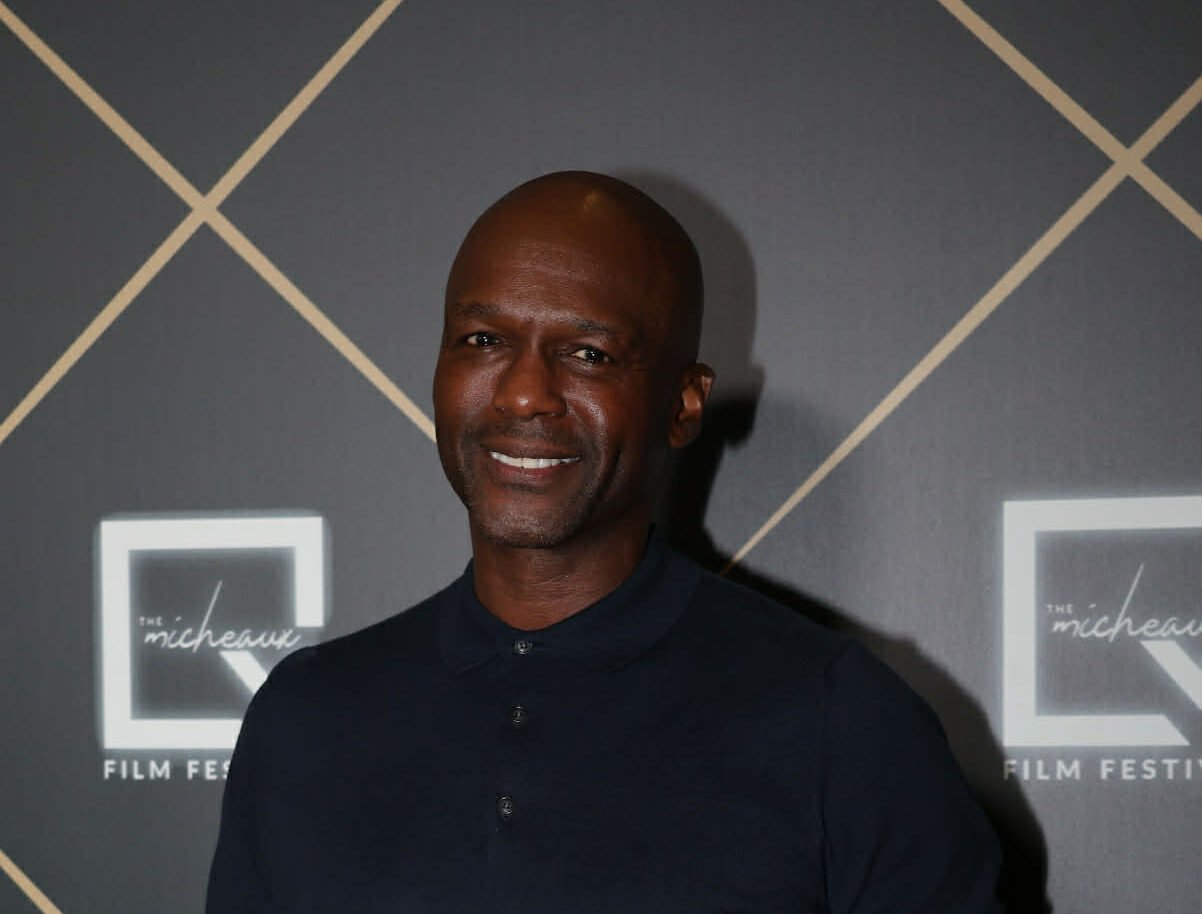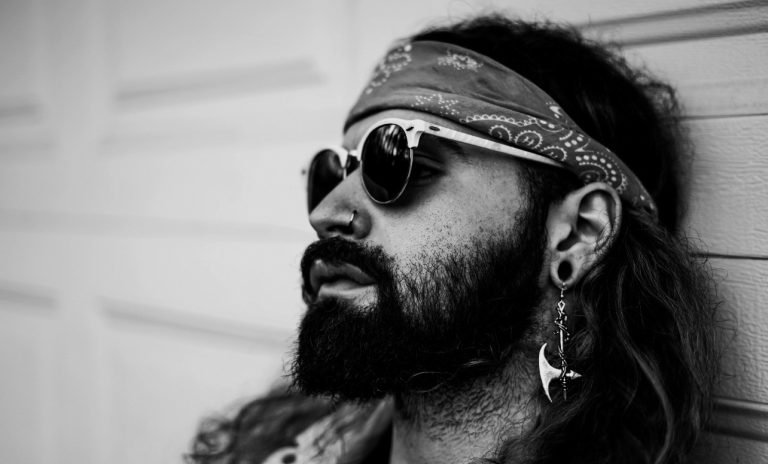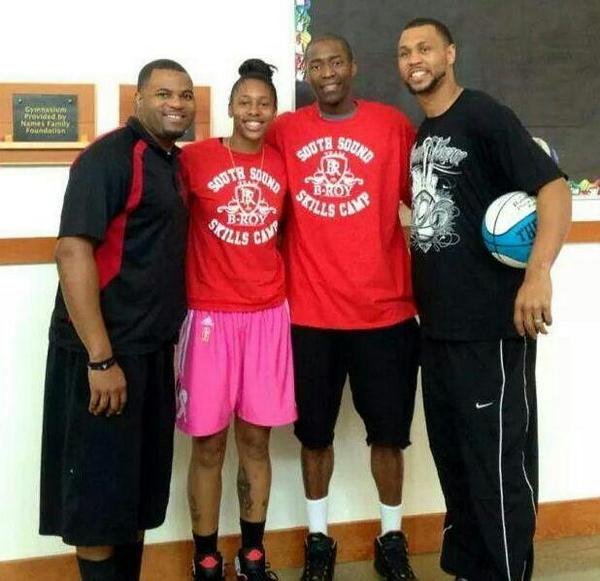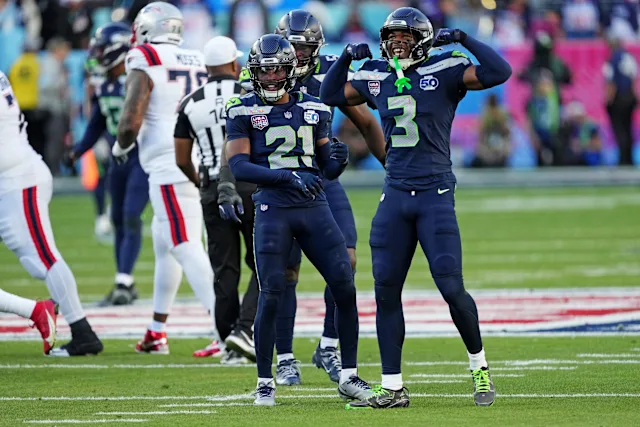
Don Wallace discusses his acclaimed role as Tyrone in Terry Dawson’s The ReWrite. Photos by Avery Archie @averyvisuals
Don Wallace is a dynamic talent in both film and television, but his newest role in The ReWrite, written and directed by Terry Dawson in 2025, is receiving critical acclaim.
A Role Rooted in Authenticity and Humanity
A Powerful Collaboration with Terry Dawson
Terry Dawson’s directing style greatly influenced Wallace’s experience on set, which is known for its warmth, precision, and creativity. Dawson encourages his actors to experiment and improvise, resulting in performances that are both organic and grounded in reality. Wallace thrived in that liberty, adding subtleties that enriched Tyrone’s character and deepened the father-son plot.
Harlem Film Festival. The film also did well at the Micheaux Film Festival, where he captures the complexity of Black life with beauty, humor, and honesty.
Beyond the Screen — Culture, Craft, and Legacy
Wallace views The ReWrite not only as a film but also as a part of a wider history of Black storytelling that acknowledges past visionaries and drives forward new narratives. From its jazz-infused style to its celebration of Black culture and family relationships, the movie embraces authenticity, a value shared by both Dawson and Wallace. The actor notes that taking on this role showcased his comedic versatility, following a career spent primarily in dramatic performances. The challenge and the creative shift were both refreshing and rewarding.
The actor notes that taking on this role showcased his comedic versatility, following a career spent primarily in dramatic performances. The creative shift was both refreshing and gratifying.
Wallace discussed character motivation, on-set creativity, the emotional foundation of the father-son relationship, and his hopes for future storytelling in a conversation that went beyond the surface. His reflections reveal not only the skill behind Tyrone but also the personal truths that make the performance ring true. Our full Q&A with Don Wallace includes an in-depth examination of his process, his collaboration with Terry Dawson, and the long-term impact of The ReWrite on his artistic journey.
What initially drew you to the role of Tyrone in The ReWrite, and how did you connect with his character on a personal level?
My manager sent me the audition, and she thought it was a pretty interesting character. What connected me to the role was the simple fact that my character was a father, which was relatable to me because, as a father myself, I have a pretty close relationship with all my children. I could relate to the relationship Tyrone has with Elliot in terms of the expectation and support offered as a parent.
Can you share a bit about how you prepared for this role — were there any specific influences or real-life experiences you drew from to bring Tyrone to life?
I honestly looked at my own relationship with my sons and the dynamic between us. In most cases, it’s pretty humorous. And the jokes are usually on me.
The ReWrite mixes humor with heartfelt social commentary. How did you find the balance between comedy and emotional authenticity in your performance?
As an actor, I always deal with the given circumstances and find ways to respond authentically. As far as my scene with Elliot, no matter how funny it may have been, I just dealt with the issues that I was having as far as my expectations as a father and the disappointment that Tyrone has with Elliot. I have always tried to be curious and discover things throughout our scene.
What was the most challenging or rewarding scene for you to film, and why did it stand out?
I think the scene with me asking Elliot about his career and trying to be supportive in my own way was both rewarding and challenging, because you’re dealing with a father who loves his son but is also extremely frustrated because he finds himself supporting a grown man who could actually be working for his own father.
On working with Terry Dawson, Terry is just an amazing and creative director who allows actors the freedom to play and discover things. It’s very relaxed and easy to work with him. Terry Dawson is known for infusing his stories with depth and purpose while maintaining relatability.
What was it like collaborating with him as both a writer and director?
Terry is definitely an actor-director. He’s incredibly creative and enjoys nuanced, layered performances. As a writer myself, I truly appreciate Terry’s writing because he humanizes his characters; they’re all grounded in truth. Even within his stories, he finds humor in the characters’ real-life pain or trauma, breathing a wonderful amount of life into them, which allows them to come alive.
How would you describe Dawson’s directing style on set? Did he give you creative freedom with Tyrone, or was the vision exact from the start?
He gave me the freedom to improvise and play with the character as long as it stayed within the story. Very easy.
The ReWrite has earned recognition at ABFF, MVAAFF, and the Harlem Film Festival. From your perspective, what do you think makes Dawson’s storytelling resonate so strongly with audiences and critics alike?
We actually just won best film, best screenplay, and one of the cast members won best actor, so I’d say he’s been on a roll. Terry loves telling very honest and emotionally well-developed stories. He’s so down-to-earth as a person, and I think he breathes that into his characters and stories. On Themes and Impact
Terry’s theme has a somewhat young Spike Lee feel to it. It’s cool, sexy, and has that smoky jazz feel. He loves black culture and our people and likes to showcase that positively. It’s honest and sweet, but a little gritty too. The film explores themes of identity, reinvention, and the creative process.
What message do you hope viewers take away from Tyrone’s journey and the film as a whole?
I hope that the audience relates to Tyrone as a parent and feels comfort in knowing that we all have a certain level of expectation of our children, as much as we love them. I also hope they find the humanity in the story rather than it just being an African American story. I hope they find a little of the rewrite in all of us.
The ReWrite is not just a title — it’s a metaphor for second chances and rewriting one’s own story. How does that idea resonate with you personally, as an actor and as a person?
It’s funny to me because when I first read the script and saw the title, I thought to myself. “The rewrite sounds like the story of my life.” Trying to be better every day, trying another way, staying curious and being resilient. Independent Black cinema continues to grow and evolve. How does being part of a film like The ReWrite fit into your broader goals as a storyteller and performer?
We just won the Micheaux film festival. Oscar Micheaux directed “Within Our Gates” in 1920, as a response to Birth of a Nation. When I look back at filmmakers like him, I realize not only how fortunate I am but also how far we have all come. It does nothing but inspire me. I’m very thankful to all those who came before me. Regarding Future Work and Reflection, I have several projects scheduled for release next year. Death in Ojai, directed by Philippe Caland, I have two films coming out, directed by Christopher Stokes, and several projects that I’ve written, which I’m pitching.
As I reflect, I definitely want to work with Terry again. I like him a lot and he’s become a good friend. After the success of The ReWrite, how do you see this role influencing the kinds of projects you want to pursue next? I hope people see that I can do comedy and be humorous, doing funny things.
I’ve done dramatic roles for most of my career, so it’s nice to do something like this.
If you could “rewrite” one moment in your career or life — in the spirit of the film — what would it be, and why?
That would be a whole other interview. I’ve made too many mistakes to count, some of which I regret, and most of which I’m grateful for because there is a lesson in everything. One of the things I would have done would have been to come to LA later and stay in New York for a while, but again, that’s a whole other interview.
Landon Buford is an accomplished sports and entertainment journalist based in Richardson, Texas, with over a decade of experience covering the NBA, WNBA, NFL, WWE, MLB, and the entertainment industry. Known for delivering high-impact stories and headline-making interviews, Buford has earned a global audience through content that blends insider access with compelling storytelling.
He previously served as director of editorial and brand communications at PlayersTV, where he helped shape the platform’s editorial voice and brand identity. He is also the founder and editor-in-chief of LandonBuford.com—an independent outlet with more than 1.6 million views and syndication from major platforms including Bleacher Report, Sports Illustrated and Yahoo Sports. Buford’s interviews with stars like Gary Payton, Kevin Durant, Mark Cuban and Chris Paul showcase his talent for meaningful, in-depth conversations.
His bylines have appeared in Sports Illustrated, Forbes, Heavy.com, Meta’s Bulletin and One37pm, where he has contributed exclusive interviews, breaking news and cultural insights. At Heavy.com, his work drew more than a million views in just eight months, and at One37pm, it contributed to record-breaking traffic numbers.
His work highlights the intersection of sports, fashion, music, and entrepreneurship—showcasing how athletes and entertainers use their platforms to inspire change, influence trends, and shape culture beyond the game. Landon has interviewed a wide range of figures from the NBA, NFL, and entertainment industries, consistently bringing authentic voices and untold stories to the forefront.
In addition to his journalism, Buford is an entrepreneur and content creator, dedicated to amplifying diverse narratives and driving meaningful conversations across media platforms. His passion for storytelling, culture, and innovation continues to make him a respected voice in the evolving landscape of sports and entertainment media.





